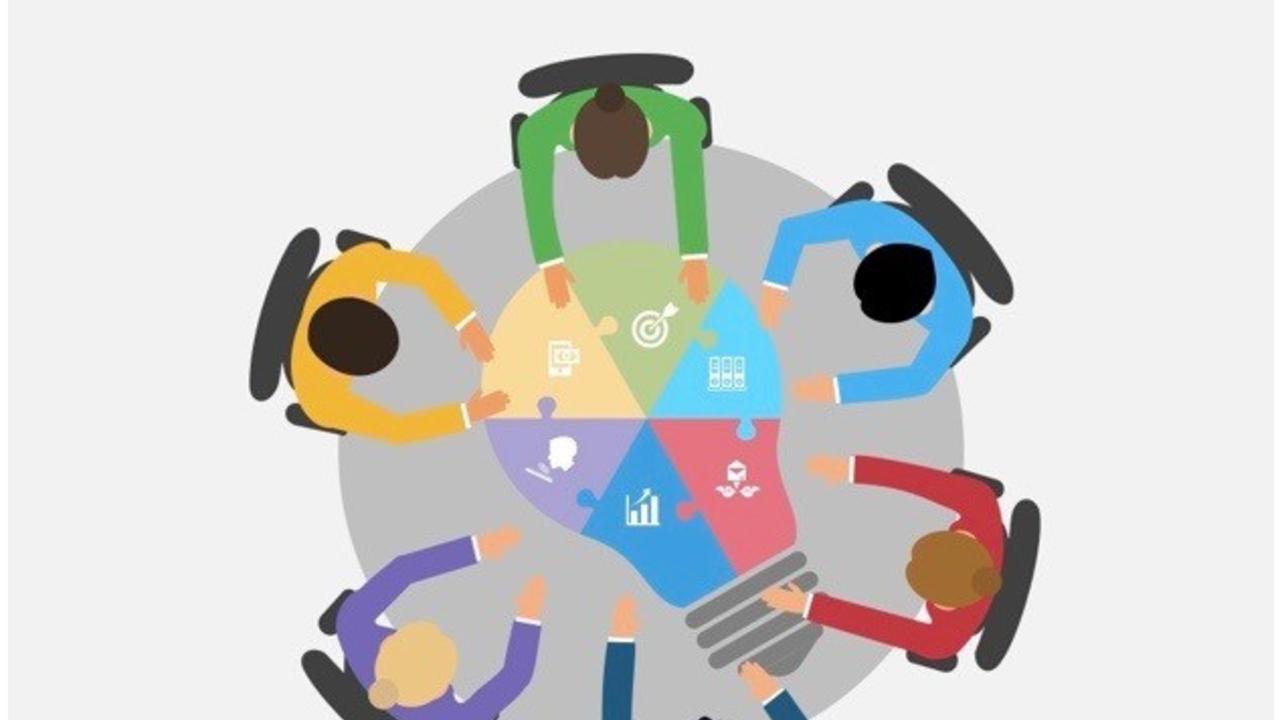Student Success Team Challenges

Student Success Teams development and implementation has been a significant challenge at colleges. It often begins with the misconception that Student Success Teams is a Guided Pathways concept. It's not. The construct has been around for decades. Let's unpack why there are challenges and what to do about it.
First, what is a Student Success Team (also known as a "Completion Team")? Here's how I define it:
Generally speaking, a student success team is an academic and student services team that collaborates to plan and implement data-informed, equity-infused practices along the student journey.

Anyone who has successfully implemented a five-year Title V HSI grant that closed equity gaps is no stranger to this academic and student services team concept.
The devil's in the details though.
Challenge #1: Fear of change
The reason Student Success Teams have been tied with Guided Pathways is largely because of a piece I wrote a couple of years ago that went viral. In my Q&A with Bakersfield College about their Completion Teams, they attached them to their Guided Pathways meta-majors. I argued that if a college develops meta-majors, the way to operationalize them is through these academic and student services teams coming together to analyze data and act upon it. However, given that meta-majors is a dirty name at many campuses (a lack of clarity and misinformation is largely to blame), people have been fighting the cross-functional team concept at their campus. I've seen it all--from outright sabotage to stalling tactics. At some colleges, it's not so much that the concept has been tied to Guided Pathways, but that people fear their job descriptions would change. In short, it's the fear of change.
Challenge #2: Ineffective consulting
It doesn't help that there are outfits claiming that they could help colleges implement Student Success Teams. Here's a recent quote from someone who confided in me at a conference.
"We had this organization visit us to help with student success teams. They're nice people, but they don't know what they're doing. Like us, they're making it up as they go along, and the so-called coaching is ineffective."
This particular organization set them on the wrong path because they failed to ask them the right questions critical to their institutional context. And this org has never really implemented Student Success Teams, but they claim they are a resource.
Challenge #3: Pilot backlash
There's been a backlash against pilots. I get it. Some ideas die in pilot land, but to be fair, many don't. I wholeheartedly support pilots when it comes to Student Success Teams. There's nothing wrong with experimenting with two or three Student Success Team for a semester. They, in turn, can help offer lessons learned when teams are scaled across the campus. When campuses go full blown Student Success Team implementation all at once, it takes exceptional leadership, starting with the president, to pull this off. If the president lacks a high degree of tolerance for ambiguity and points fingers when there are bumps in the road instead of being supportive, large scale Student Success Team implementation will be set up for failure.
What are some considerations to plan Student Success Teams?
An effective coach and/or internal college leader(s) would help the campus come up with its own homegrown Student Success Team configuration. I can do another article on this alone, but here are some initial questions to ask:
- Who needs to be on each team and why?
- Are there any costs or will the team be entirely time resource allocated?
- Where will the teams reside? Within a division? Within meta-major? Within an existing school?
- What will be their purpose?
- What kind of training will they receive?
- What's the agenda for the kick-off?
- How much time will they be given to norm?
- How often will they meet and for how long?
- Who will be the doers vs inputters?
- Who would be the lead or co-leads?
- How often would the leads or co-leads of all teams meet?
- Will the teams serve as inquiry teams and/or student support teams? A related question, what data will they analyze and why?
- Will there be a data coach?
- Will a few teams get started first or will the campus scale all at once?
- What's the relationship between Student Success Teams and shared governance?
- How will equity be infused via these teams?

Thus far, I've seen all Student Success Teams planned to be student services heavy. And even when there's a plan to include instruction, the teams' interventions are all student services solutions because it tends to be the easiest route (and they lack training, structure, and processes to fold in instruction). Yet, where do students spend most of their time in campus? The classroom. If Student Success Teams ignore instruction, it would be a missed opportunity to address equity. That's why I've advocated for a separate teaching & learning team (another team where the devil's in the details in terms of its function) that have a faculty member embedded into each Student Success Team.

Here's a scenario of why instruction is key to Student Success Teams:
A STEM Student Success Team at an HSI (over 80% Latina/o/x) analyzed data and learned that:
The majority of incoming biological sciences majors are placed in college algebra and trigonometry with less than 10% reaching calculus courses and about 5% transferring to a four-year university.
Given the data, faculty did research on promising practices and decided that biology and math faculty would collaborate to contextualize math content with biology. They also created supplemental materials in college algebra and trigonometry for biology majors that are leveraged in weekly academic success workshops.
Above is one of endless scenarios that meaningfully involve instruction. Otherwise, the go-to strategy would be a Student Success Team that emails students (among the countless other campus emails they receive) or initiates some form of "intrusive" counseling. Not that these practices are meaningless, but again, it's putting the onus entirely on student services and totally excluding instruction.
Take it from someone who started his career in a system that has been heavily "initiative fatigued" to death and who coached principals and teachers throughout the US. We tried every flavor of the month: counseling, technology, data teams, technology, community relations, technology, workshops, technology, etc. (see a pattern?). Nothing significantly improved student success until we focused on instruction. This recent study, among many, illustrates my point, and while all students benefit from quality instruction, guess who benefitted the most? Students of color.
While Students Success Teams need to figure much of what they do organically by actually doing the work, they still need support through trainings, and to utilize a protocol that allows their work to be organized with processes. Without any support and structure, Student Success Teams will wander in the unproductive wilderness, which over time creates burn out and resentment.
Let's get this right for students.
Onward...
###
Also visit: Student Success Team Models to Consider | Student Success Teams: Do's & Don'ts | Virtual Student Success Teams






